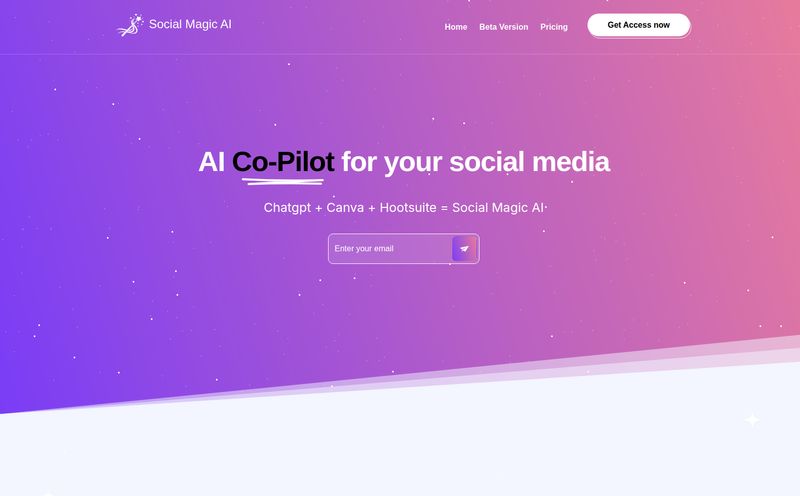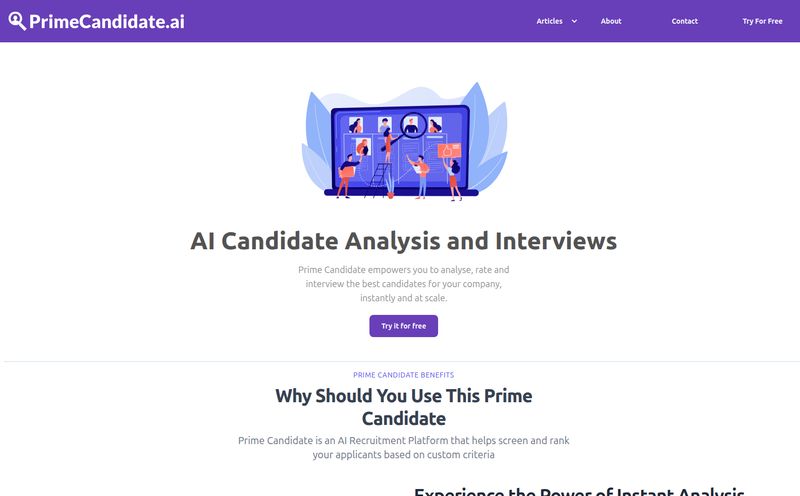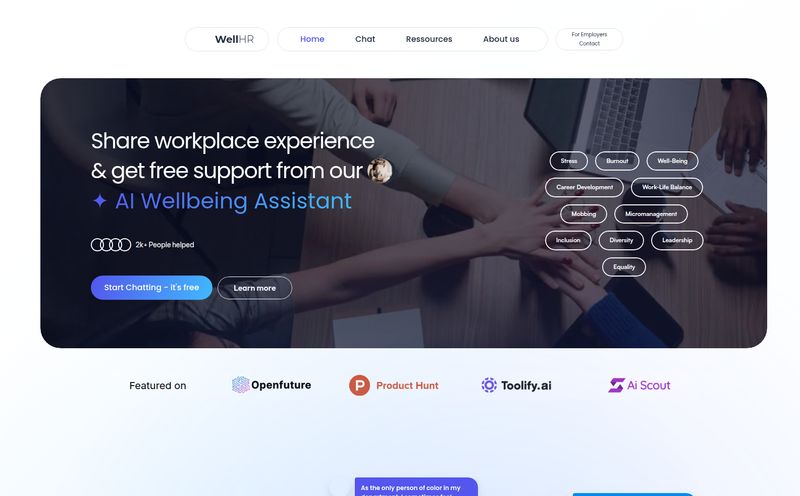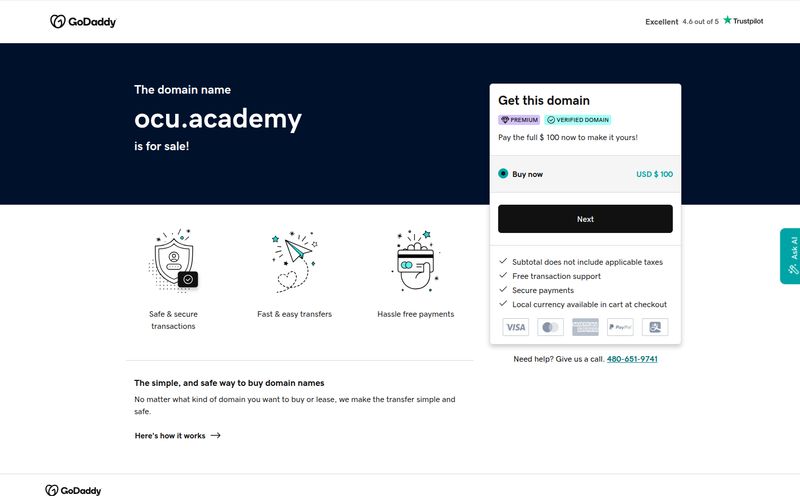For years, we've been promised the dream of the perfect personal assistant. You know the one. The Jarvis to our Tony Stark. An AI that doesn't just set timers and tell us the weather, but one that actually... gets us. We’ve got Siri, Alexa, and Google Assistant, and don’t get me wrong, they're great for settling pub debates about an actor's filmography. But are they truly personal? Do they understand the messy, beautiful chaos of a human mind? Not really.
I've been in this tech and traffic game for a long time, and I've seen countless apps and platforms promise to revolutionize productivity. Most of them are just prettier to-do lists. But every now and then, something pops up on my radar that makes me lean in a little closer. Today, that something is Mindverse AI.
Their whole pitch isn't just about another smart assistant. It's about creating a 'digital self,' a 'Second Me.' A concept so ambitious it's either going to be a monumental breakthrough or a spectacular failure. And honestly? I'm here for either one.
So What Exactly is Mindverse AI?
Let's break it down without the marketing fluff. Mindverse AI isn't a single product but a whole ecosystem. At its core are two main components: MindOS, the platform, and Me.bot, the star of the show.
Think of MindOS as the factory or the workshop. It's the underlying system that allows for the creation of sophisticated AI agents. These can be for your business, your projects, or, most intriguingly, for yourself. And that’s where Me.bot comes in. Me.bot is pitched as your very own personel AI assistant, built on the MindOS platform. It's designed to integrate with your mind and the world around you. Big words, I know. It’s supposed to manage your schedule, sure, but also help organize your scattered thoughts, spark new creative ideas, and even preserve your memories.
This is a big leap from “Hey Google, what’s the traffic like?”. This is about building an AI that is a networked extension of you.

Visit Mindverse AI
Meet Me.bot: The AI That Wants to Be You
Okay, so the concept is cool. But what does it actually do? From what I can gather, Me.bot aims to be less of a robotic butler and more of a digital consciousness partner. It's like building a LEGO version of your own mind that can help you sort through the real one.
More Than a To-Do List: A Digital Memory Box
The feature that really grabbed my attention is 'memory preservation.' This is fascinating. We all have fleeting thoughts, moments of inspiration that vanish before we can write them down. I can't tell you how many killer blog post ideas have evaporated from my brain between the shower and my laptop. The idea of an AI dedicated to capturing and organizing these moments is incredibly compelling. It's less of a diary and more of a living archive of your consciousness.
They also mention an open-source framework for training your AI self. This is a nod to the developers and tinkerers out there. It suggests a level of customization that goes way beyond choosing a new voice for your assistant. You could, in theory, teach your Me.bot the specific ways you think and work.
The Promise of Genuine Productivity
Beyond memory, Me.bot is supposed to be a productivity powerhouse. It helps manage schedules and organize thoughts. For anyone with a creative or chaotic mind (guilty!), the idea of an AI that can help find the signal in the noise is a dream. It’s not just about reminding you of a meeting; it's about potentially connecting the notes from that meeting to a random idea you had last week, sparking something entirely new. That's the holy grail, isn't it?
The Big Questions and The Inevitable Hiccups
Now, as an SEO and tech guy, I’m paid to be a professional skeptic. While the vision for Mindverse AI is exciting, we have to talk about the reality. No tool is perfect, and ambitious ones often have the biggest hurdles to overcome.
The Upside is Clear
The potential here is obvious. A truly integrated AI partner could be a game-changer for productivity, creativity, and even mental wellbeing. Having a 'second brain' that is custom-built for you could help manage the information overload we all face daily. It's the ultimate life-hack, a digital twin dedicated to making the original you better. The focus on creating a digital self rather than just a generic AI is a powerful differentiator.
The Potential Downsides and Unanswered Questions
But then there are the concerns. First, the learning curve. The documentation mentions that creating an AI agent requires some understanding of the process. This likely isn't a simple 'download and go' app. It's for people willing to invest time to train their digital twin. That will limit its audience, at least initially.
And then we have to talk about the elephant in the room: privacy. If this AI is preserving your memories, your thoughts, your very essence... where does that data live? Who has access to it? The idea of a company holding the keys to a digital version of my consciousness is, frankly, a bit terrifying. These are serious ethical questions that Mindverse AI will need to answer with radical transparency. The concept of a digital self is powerful, but as the great philosopher Spider-Man taught us, with great power comes great responsibility.
There's also a bit of vagueness around the specifics. While digging around for this piece, I found some of their pages, like for pricing, were inaccessible (shoutout to the classic 403 Forbidden error). It suggests the platform might still be in a very early stage, which isn't a bad thing, but it means we have to temper our expectations with a healthy dose of 'we'll see'.
What's the Price for a Digital You?
This is the million-dollar question, isn't it? Unfortunately, as I just mentioned, finding concrete pricing information is impossible right now. Their pricing page seems to be under wraps. This could mean they're still figuring it out, or maybe they're focusing on enterprise clients first.
If I were to guess, I'd imagine a tiered model. Perhaps a free version with limited 'memory' or capabilities, and a monthly subscription for the full 'Second Me' experience. For a tool this personal, a subscription model makes the most sense for ongoing development and, crucially, server costs for storing all that data.
So, Who Is Mindverse AI Actually For?
Based on everything, Mindverse AI isn't for the casual user just yet. It’s for the pioneers. It’s for the tech enthusiasts, the life-loggers, the bio-hackers, and the productivity obsessives who love the idea of tinkering and building a system that's uniquely their own. It's for developers and small businesses who see the potential in creating bespoke AI agents via the MindOS platform.
If you're someone who gets excited about the potential of AI beyond chatbots, and you're willing to be an early adopter, Mindverse AI is definitely one to watch.
Frequently Asked Questions
- What is Mindverse AI in simple terms?
- It's a platform (MindOS) that lets you create your own AI assistants. Their main product is Me.bot, a personal AI designed to act as your 'digital self'—helping with organization, creativity, and even preserving your memories.
- How is Me.bot different from Siri or Alexa?
- Siri and Alexa are general-purpose assistants that answer questions and perform simple tasks. Me.bot aims to be a deeply personalized AI that you train to understand your unique way of thinking and working, essentially becoming an extension of your own mind.
- Is Mindverse AI open source?
- The information points to an open-source framework for training your AI self, which suggests a high degree of customizability. It's unclear if the entire platform is open source.
- What are the privacy concerns with Me.bot?
- The main concern involves data security. Since Me.bot is designed to store personal thoughts and memories, it's critical to know how that data is encrypted, where it's stored, and who has access to it. These are questions potential users should seriously consider.
- Can I use MindOS for my business?
- Yes, the MindOS platform is designed for creating AI agents for both personal and business applications, so you could potentially build custom bots for your company's needs.
- Is Mindverse AI free?
- Pricing information is not currently available. It is likely to have a subscription-based model, possibly with a free introductory tier.
Final Thoughts: Is a Second Me in Our Future?
I started this by saying I’m a skeptic, and I am. But I'm also a hopeful one. The tech world is filled with bold promises, but the vision of Mindverse AI is one of the most compelling I've seen in a while. It speaks to a fundamental human desire to be understood and to make sense of our own complex minds.
Will it work? Will people embrace the idea of a digital twin? Can they overcome the monumental privacy and security hurdles? I have no idea. But I'll be watching. Very, very closely. Because if they can pull this off, it won't just be another app. It'll be a whole new way to be human.
Reference and Sources
For further reading on the concepts discussed in this article, you may find the following resources helpful:
- Gartner, "What Are Digital Twins?" - An overview of the digital twin concept in a business context.
- Electronic Frontier Foundation (EFF), "Artificial Intelligence" - A resource for understanding the civil liberties and privacy implications of AI.



